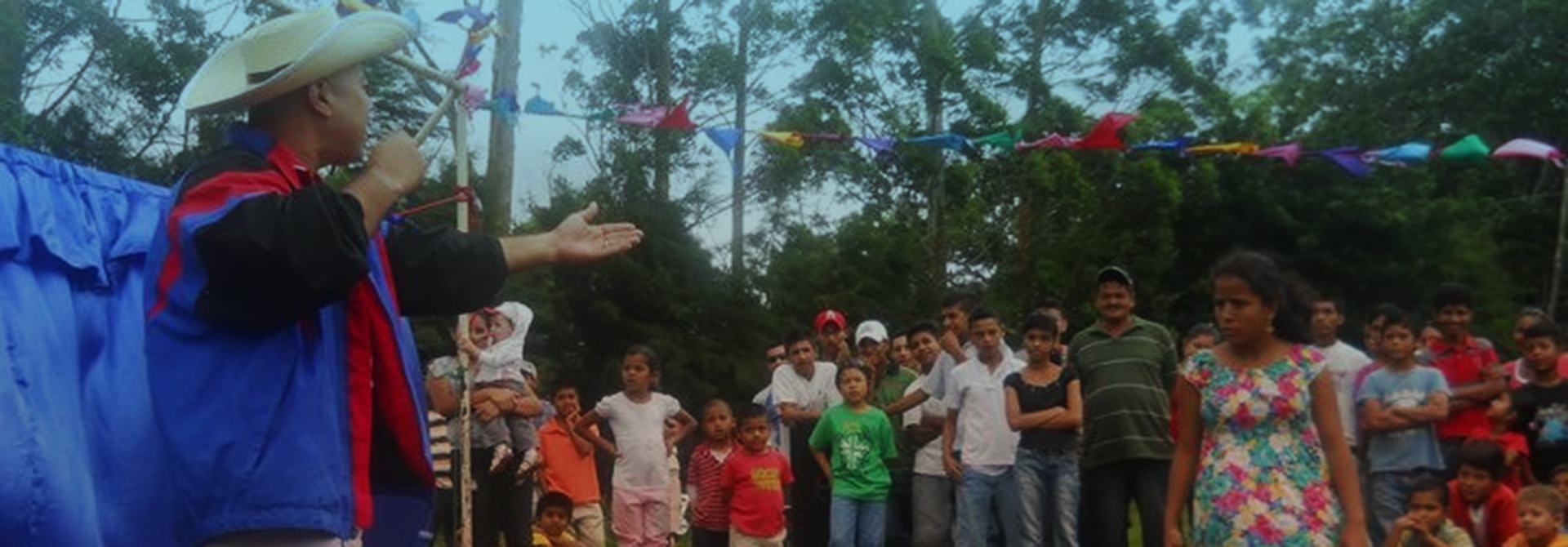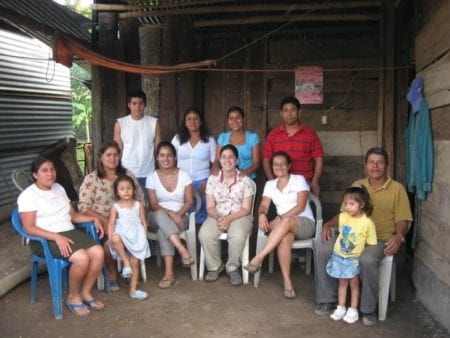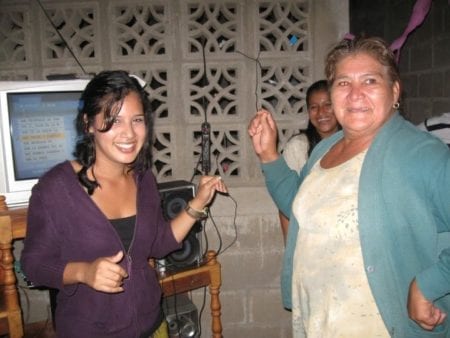Melanie went to Nicaragua in the summer of 2011. She joined AMIGOS through our partner Rice University as a Loewenstern Fellow. We caught up with her to learn more about her trip and what she learned.
What was your project?
My project partnered with CARE in the Department of Matagalpa, Nicaragua. Through this partnership, I collaborated with local youth to conduct educational activities and workshops related to safe water and the environment. For these activities, our team of students and youth counterparts planned two-hour long classes five days a week. The five themes included: Hygiene and Nutrition, Sustainable Water and Soil Management, Reforestation, Safe Water and Healthy Watersheds, Risk Management and Preparing for Disasters. Along with these weekly educational activities, I cooperated with my host community, Maria Jesus de las Olivas, to implement a small-scale community project. Community members voted for the construction of a preschool and I assisted community leaders in applying for a grant. After receiving the grant, our team of students and community members organized workdays and began the collection of materials and initiated the construction of the school.
As part of our fellowship, we kept a blog during our trip. Here is the link to my blog. Please excuse any typos or any embarrassing confessions!

How is AMIGOS different from other service/leadership programs?
AMIGOS provides students with many resources during their service. I had such a great experience by having my supervisor, Emily, follow up with me regularly, not only on the status of the project, but also on how I was personally doing. Additionally, AMIGOS provides training before the project, on topics such as Asset-Based Community Development, which were very applicable during my service trip.
What was your favorite memory?
My favorite memory was talking to my host mom (who was the same age as me at the time) every day. I loved hearing about her life and her goals. It was amazing to see that even though we lived very different lives, our beliefs in family and love were so similar.
I would recommend any student (high school or college) to travel abroad with AMIGOS. It’s such a unique and rewarding experience and a perfect way to look beyond yourself, humble yourself, and learn that the world is more than what we think it is.
How has your experience with AMIGOS shaped your educational and professional opportunities?
I feel like AMIGOS was a pivotal part of my service journey. I learned so much about community development and project management, lessons that I apply to this day at my current job. One common theme I’ve faced in my professional and service life is that of gender inequality/patriarchy. As a civil engineer who developed into a project manager, working in “male-dominated” fields has always presented these challenges. It’s a common theme and I continue to build tools on how to approach and rectify these issues, a challenge that is still very prominent all over the world and across various fields. Facing it firsthand as a college student who was used to being surrounded my strong females and men who respected strong females, it was a small shock to the system and an introduction to reality in a way. However, I don’t view it as a negative experience, as I was able to learn from it and face it head on.
Tell me about your host family.
My host family was so warm and welcoming. My host mom and dad have a young daughter. My host grandma lived very close by, with her son. We all spent time together every day. As an only child, it was really great to be part of such a big family. It made me want to spend more quality time with my family in the states, which I made a real effort in doing and continue to do today.

Do you think your time with AMIGOS affected the person you are today or shaped your values?
Absolutely! I think it made me more passionate about service and more knowledgeable on the actual process of immersing yourself into a community. It’s very important to have the right mentality about what you are doing. It’s not about bringing in ideas that you think are best for a community, it’s about listening and working with the community to come up with the best solutions and course of action to achieve their goals.
How did AMIGOS affect your life journey?
AMIGOS was a big highlight in my life-long journey to try and serve my community and the world.
When you think back about your time with AMIGOS, do you see it differently than you did when you were younger?
I don’t think I necessarily see it different. When I think back on my time with AMIGOS, I do believe I appreciated it as much as I could. I’m happy that I was prepared to really immerse myself into the community, to listen to what they wanted, not what I thought they should want in their community. I also think AMIGOS did a great job in their orientation in preparing us for our service trips.

What value do you think AMIGOS has in today’s world?
I think it creates value by introducing young people, especially this generation, to something beyond their daily life. AMIGOS can bridge that gap between what young people consider to be “problems” and open the door to actual world challenges that human kind faces today. In my opinion, AMIGOS educates our young people in the importance of service, and how they can continue to serve as adults.
Do you ever think about AMIGOS, and if so, when? What triggers those memories?
I think about AMIGOS whenever I meet someone who has visited Nicaragua or I meet people who have had a long career in service trips. My memories are triggered when I meet young people who are interested in community service, but don’t know how to help.
What advice do you have for parents of future Amigos?
Since I’m not a parent myself, I’ll share what my mom did for me. She gave me space to explore and learn about the world, without putting any restrictions or preconceived notions in my head. When I returned from my AMIGOS trip, I was full of positivity and warmth, but also with frustration and anxiety about the social issues my host family and host country faced. It can be a bit overwhelming, especially for someone so young. I tried so hard to explain my experience to my family in the states, but found that no one could truly understand. This caused me to shy away from my friends and family and only stay connected to those who went through a similar experience. Instead of allowing me to feel withdrawn from people in the States, my mom urged me to share my story with her. She would listen for hours on end, allowing me to tell her every detail and talk about the social issues people face all over the world. Listening is what my mom did for me, truly taking in what I shared is what my mom did for me. This is what I would recommend parents of future Amigos to do as well.

